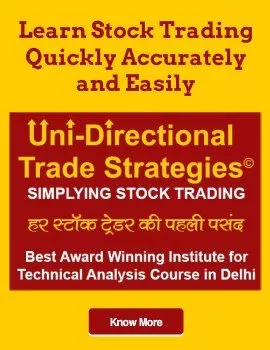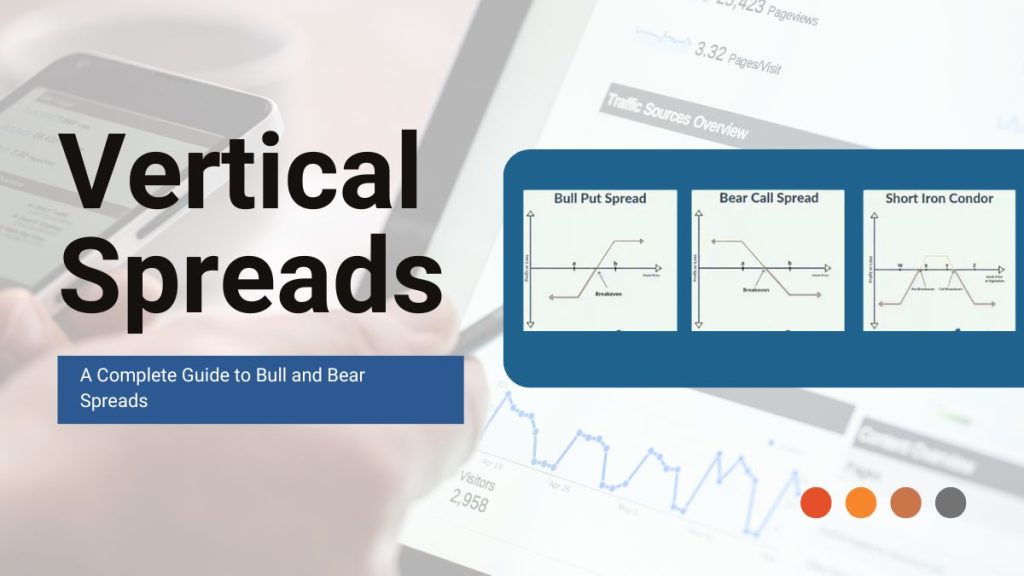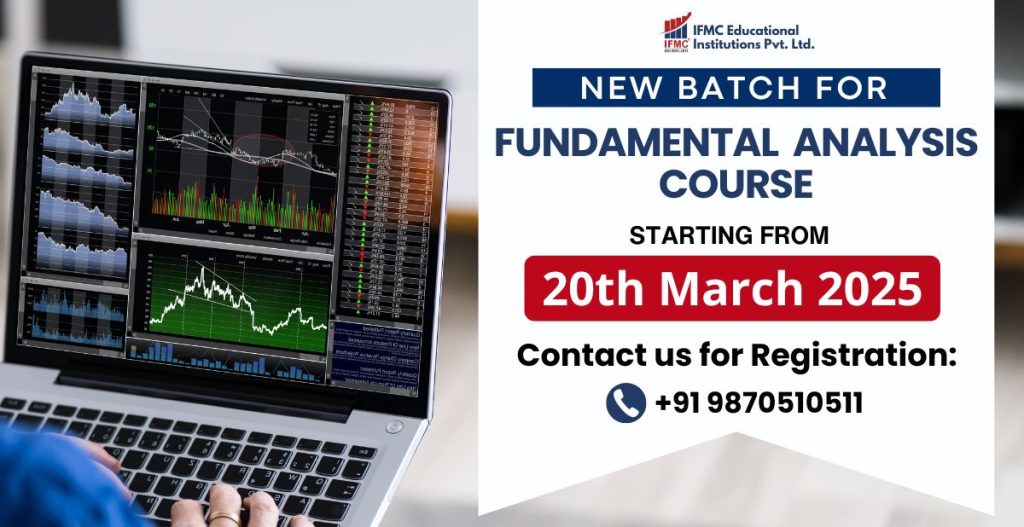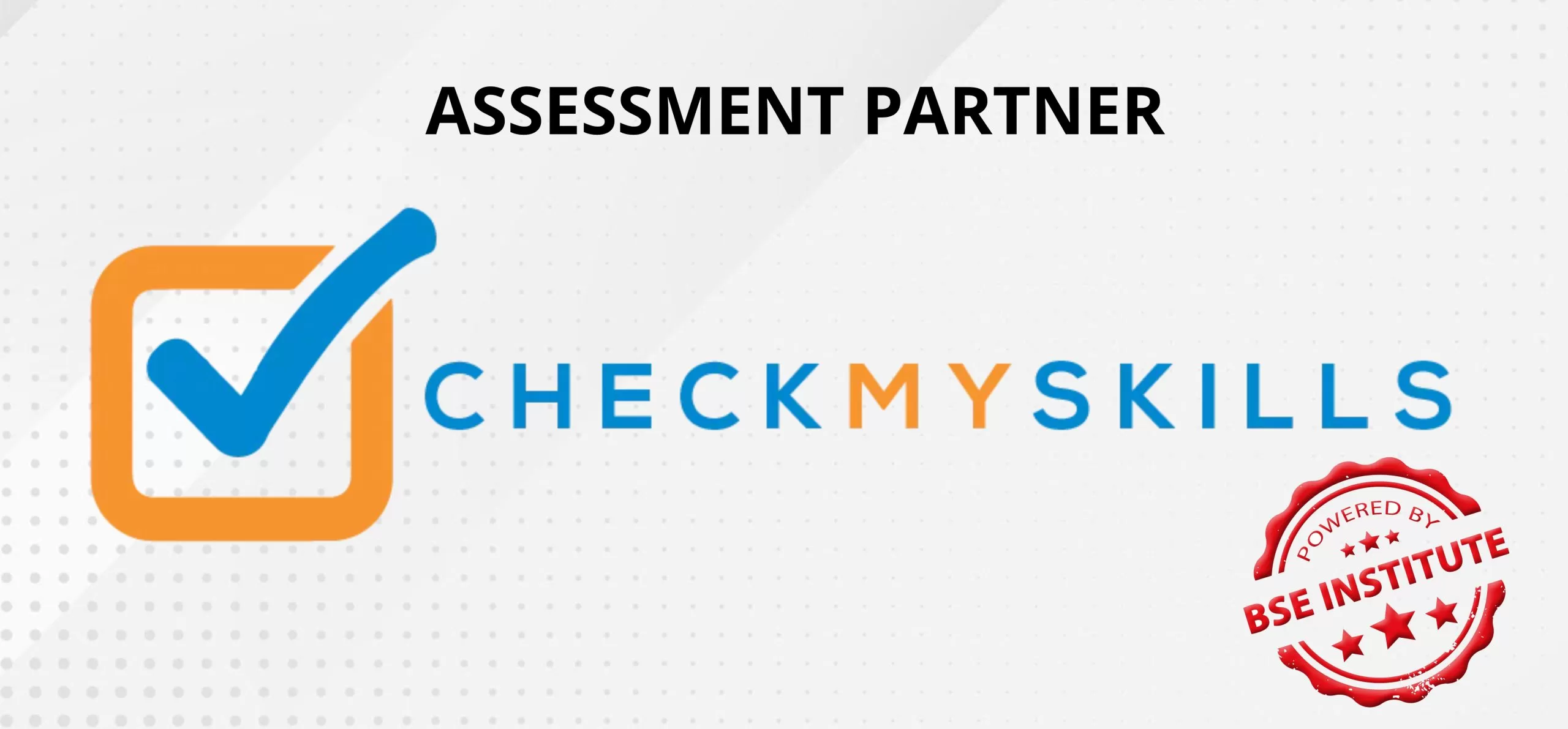Master the basics of Advance Diploma in Financial Market (ADFM) with the interactive classes. You can learn in-depth about the share and stock market to get a righteous job for you and find profitable stocks without much hustle.
About ADFM Course
This Advanced Diploma in Financial Market is a one-year programme mainly designed for all professionals and students who want to pursue a career in the financial market. Further, who dream of specializing in banking courses as well. Even those students who have completed MBA Finance, HR, and Marketing or any other field can pursue this course.
By joining this live course, you’ll receive the module based on practical and theory. The offline course includes derivatives options, Capital, currency market operations, investment advisor, risk management in the broking industry, fundamental analysis and research analysis, technical analysis, and optional strategy analyst in financial banks and institutions.
Diploma in share market is a one-year career-oriented course in the BFSI segment of the financial market. Further, other courses are also in huge demand, including BSE, NSE, SEBI certification courses in stock market advisory companies, broking houses, investment advisory companies, and KPO.
Read more: Difference Between NISM & NCFM Certification
There are numerous modules to help you explore the stock market skills. Further, you will be taught by expert faculty members having thorough theoretical and practical knowledge. These modules will also consist of real-world examples, theoretical, and practical exercises. So, you can enhance your knowledge from a beginner’s level and help you build a good career in stock market.
What will you learn in this live course?
- The fundamental concept of the capital market.
- What is legal framework and indices?
- How trading and trading membership works?
- Different types of derivatives and their concept.
- A clear understanding of the accounting of derivatives.
- Difference between international commodity and domestic commodity.
- What is technical analysis and fundamental analysis?
Only Limited Seats Available*
Book Your Classes: 9870510511
Batch Starting From 16th December 2024
Program highlights:
- One-on-one interactive sessions.
- Doubt session
- You’ll get complete guidance from experienced faculty
- Practical and theoretical knowledge.
Who Should Do This Course?
MBA & BBA/CA/CS/CPT Students
Anyone who wants the job
10+2, BA. B.com. B.Sc. Pursuing Students
Those who want to pursue the career in financial services
Detailed Curriculum
Module 1: Capital Market & its Operation (NISM Certification)
- Basic knowledge of capital market (Primary Market & secondary Market)
- Major Market Participants
- Major exchanges and indices
- Legal Framework and regulations
- Trading and Trading Membership
- Clearing and Settlement Process
- Fundamental Valuation concepts Glimpse of various trading software (ODIN, NEAT, NOW) Practical training of market operations
- Practical Classes daily from 10.00am-03.30pm (live trading and methodology)
- Online Mock test (500 Question & answer test series) of NCFM Capital market module
Module 2: Derivatives Market & its Operations ( NISM Certification )
- Introduction to Derivatives, Type of derivative contracts
- Understanding of future, forward, option and SWAP
- Future contracts, Mechanism & pricing of Forward contracts
- Understanding of Options and it’s (call & put)
- Trading, Clearing, and Settlement, Risk Management in Derivatives
- Regulatory Frame Work
- Accounting of Derivatives
- Practical Classes of 10 hours (live trading and methodology (Futures & Options)
- Online Mock test (1000 Question & answer test series) of NISM Derivative market module
Module 3: Commodity Market (NCFM Certification)
- Understanding Commodity Market
- Live Trading in Commodities – MCX and NCDEX
- International commodity Vs Domestic Commodity
Module 4: Currency Market (NISM Certification)
- Currency Derivative and its History
- Forward, Future and Options of currency derivative
- Trading, clearing, settlement & Risk Management of currency futures
- Different Strategy Use for Currency Derivative Trading
- Live Trading practices (2 Hours) in currency derivative segment
- Online Mock test (800 Question & answer test series) of NISM series1
Module 5: Technical Analysis and its Application (NCFM Certification)
Introduction to Technical Analysis
What is technical analysis?
The basis of technical analysis
Difference between technical vs fundamental analysis
Type of Charts
Introduction to chart
The various types of price charts
- Line chart
- Bar chart
- Candlestick chart
- Kagi chart
- Point & Figure chart
- Renko chart
- Three Line Break chart
Trend lines
- what is the purpose of drawing trend lines?
- How to plot trend lines
Candlestick Study
One candlestick pattern
- Doji
- Hammer / Hanging Man
- Inverted Hammer / Shooting Star
- Spinning Top
- Marubozu
Double candlestick pattern
- Bullish/Bearish Engulf
- Bullish/Bearish Harami
- Piercing pattern /Dark cloud cover
- Tweezer Top & Bottom
Triple candlestick pattern
- Morning star /Evening star
- Three white shoulders / Three black crows
- Abandoned body (Bullish & Bearish)
- Tasuki Gap (Bullish & Bearish)
Five candlestick pattern
- Rising three methods & falling three methods
Support & Resistance
What is Support?
What is Resistance?
Change of support to resistance and vice versa
Charts patterns and their study
Four stages:
- Accumulation
- Markup
- Distribution
- Panic liquidation
Chart patterns:
- Head & Shoulder
- Inverted Head & Shoulder
- Double top/bottom
- Flag & Pennant
- Symmetrical, Ascending, Descending Triangles
- Wedge Patterns
- Rounding top/bottom
- Cup & Handle
- Rectangles Bullish/Bearish
- Triple top/bottom
Gaps & Gaps Analysis
Types of Gaps:
- Common gap
- Breakaway gap
- Runaway gap
- Exhaustion gap
- Island cluster
Oscillators & indicators
What does a technical indicator offer?
Why use indicators?
Types of indicators:
- Leading indicator
- Lagging indicator
Moving Averages
- Simple moving average
- Exponential moving average
- How to trade on moving averages
MACD
- what is the MACD and how is it calculated?
How to trade on MACD
RSI
- What is momentum?
- Calculation of the RSI
- Divergence
- How to trade on RSI
On Balance Volume
- Overview
- Calculation of On Balance Volume
- How to trade on On Balance Volume
Stochastic
- Overview
- Construction
- How to trade on stochastic
William %R
- Overview
- Signals
- How to trade on William %R
Bollinger bands
- Few rules for beginners
- How to trade on Bollinger bands
- How to use multiple indicators
Money Flow Index
- Overview
- How to trade on Money Flow Index
Trading strategy
The Dow Theory
- Background
- The principal rule of the Dow Theory
Elliot Waves theory
- Elliot wave basics
- How to trade on Elliot waves
Fibonacci sequence
- How to trade on the Fibonacci retracement
- How to trade on the Fibonacci extension
Trading psychology and how to manage the risk
Module 6: Option Strategy (NCFM Certification)
Introduction to Options
- Options Terminology
- Options Payoff
- Payoff profile of buyer of asset: Long asset
- Payoff profile for the seller of asset: Short asset
- Payoff profile for buyer of call options: Long call
- Payoff profile for the writer (seller) of call options: Short call
- Payoff profile for buyer of put options: Long put
- Payoff profile for the writer (seller) of put options: Short put
STRATEGIES
- Long Call
- Short Call
- Synthetic Long Call
- Long Put
- Short Put
- Covered Call
- Long Combo
- Protective Call
- Covered Put
- Long Straddle
- Short Straddle
- Long Strangle
- Short Strangle
- Collar
- Bull Call Spread Strategy
- Bull Put Spread Strategy
- Bear Call Spread Strategy
- Bear Put Spread Strategy
- Long Call Butterfly
- Short Call Butterfly
- Long Call Condor
- Short Call Condor
Module 7: Fundamental Analysis (NCFM Certification)
- Introduction of Fundamental Analysis
- What is Fundamental & Technical Analysis?
- Difference between technical & fundamental analysis
- Features & benefits of Fundamental analysis
2. Top-Down Approach in Fundamental Analysis
- Economic Analysis
- Industry Analysis
- Company analysis
3. Economic Analysis
GLOBAL & DOMESTIC RESEARCH (EVENTS)
- Political events (Election Results)
- Central Bank Meet (Central Bank events)
- Government Budget
- Monsoon
- OPEC Meeting
- War or Terrorist Attack
OTHER EVENTS
- Rating agencies
- India VIX
- Scandal
- Insider Activity
- Country Debt
CURRENCY ANALYSIS
CORRELATION OF EVENTS
ECONOMIC DATA ANALYSIS
- Inventory
- Retail Sales
- Consumer Confidence
- CPI – Consumer Price Index
- PPI – Producer Price Index
- Core Durable Goods Order
- New Homes Sales
- Building Permits
- ADP Non-Farm employment
- Non-Farm Employment
- Unemployment Claims
- PMI
- Industrial Production
- GDP Gross Domestic Production
- Trade Balance
- Crude Oil Inventory
4. Industry Analysis
SECTOR ANALYSIS (SECTOR SELECTION)
- Oil & Gas Sector
- Aviation Sector
- Paint Sector
- T. Sector
- Metal Sector
- Pharma & FMCG Sector
- Jems & Jewellery Sector
- Banking Sector
- Automobile Sector
- Real Estate Sector
- Cement Sector
- Telecom Sector
- Power Sector
5.Script Selection
Share or Commodity Selection
6.Company Analysis (Valuation)
- Cash Flow
- EPS
- P/E
- Book Value
- Price to Book Value
- EBITDA
- Profit Ratios
- Dividend
- Market Cap
- DEBT
- Management
- Promoters Holding
- Volume
- Open Interest
- Beta
- Moving Average
Module 8: Investment Advisor (NISM Certification)
- Objectives of Investment Decisions
- Different Types of Financial Markets
- Understanding the concept of Fixed Income Securities and their valuation
- Capital Market Efficiency
- Modern Portfolio theory
- Financial Analysis and Valuation
- Valuation of Derivatives
- Portfolio Management
Module 9: Security Operation and Risk Management (NISM Certification)
- Introduction to Risk Management (what is Risk & Type of Risk)
- Understanding of Margin mechanism ( Stock and index)
- Understanding of VAR & SPAN margin mechanism
- Live surveillance training
- Internal & External policy regarding Risk management
- Brief understanding of Banking, DP, DEMAT, KYC
- Compliance Management
Module 10: Research Analyst Certification (NISM Certification)
- Overview on NSE BSE MCX etc.
- Understanding Income statements
- Balance sheet Analysis
- Cashflow Analysis
- Brief on various software
- How do capital Markets work worldwide
- Fundamental vs Technical Analysis
- Top-down and Bottom-up Approach
- Macro & Micro Aspects in Relation to stock markets
- Markets affect by IIP, Inflation, PMI, Monetary Policy, etc.
- Regression Analysis &Anova distribution
- Correlation & Covariance Analysis
- Financial terminology such as Buyback, Bonus, Corporate Actions, etc.
- Quarterly Results Analysis
- Annual Reports Analysis
- Management Discussion
- Directors Report
- How to read Company Annual Report & DRHP
- NPV & IRR Rules
- HPR & HPY
- Statistical Concepts & Market Returns
- Demand Supply & Elasticity Concepts
- Comparative Analysis.
- IPO Analysis
- Stock Portfolio model.
- Descriptive Statistics Models.
- Understanding Standard Deviation & Variance.
- Understanding CAL, SML & CML equations.
- Markowitz Modern portfolio model.
- Skewness, Kurtosis & Range.
- Net Asset Value Analysis.
- Canslim Model by William J. ONeil
- Relative & Comps Techniques.
- Dividend Discount Model.
- Ratio Analysis e.g.ICR, Debt Equity, Pat margin, Debtors equity, etc.
- Step Wise Dupoint Analysis
- Sharpe &Treynor Ratio, Alpha & Beta Analysis
- PE, EPS, ROI, ROA Analysis
- Capital Budgeting & Cost of Capital
- Capital Asset Pricing Model
- The weak form, semi-strong form, and strong form market efficiency
- Company Analysis – Qualitative Dimensions
- Company Analysis – Quantitative Dimensions
- Banking Sector Terminology
- Mutual Fund Analysis.
- Basic Use of Excel & Techniques.
- Qualities of a Good Research Report
- Time Value of Money
- Forecasting Techniques.
- Revenue Builders.
- Building the asset and depreciation schedule.
- Building P&L & Balance sheet.
- Building Assumptions & Debt Schedule.
- Understanding FCFF, FCFI.
- Building Capex Schedule.
- Decoding Ke, Kd&Kp with WACC.
- CAPM and its understanding.
- EV/ EBITDA & SOTP Understanding Concepts
- Understanding Calculators
- Basics Of Derivatives
- Forwards & Futures
- Put-Call Parity
- Basic Hedging Strategies for Analysts
- Live & Desk Cases on companies
- Knowledge sessions on undervalued & overvalued stocks
- Understanding Analyst Presentations
- Review current Macro & Microtrends.
- Review Global trends like the Eurozone crisis, the Oil crisis, IT visa issues, etc.
- Sessions will include a mid-term and an end-term examination.





















